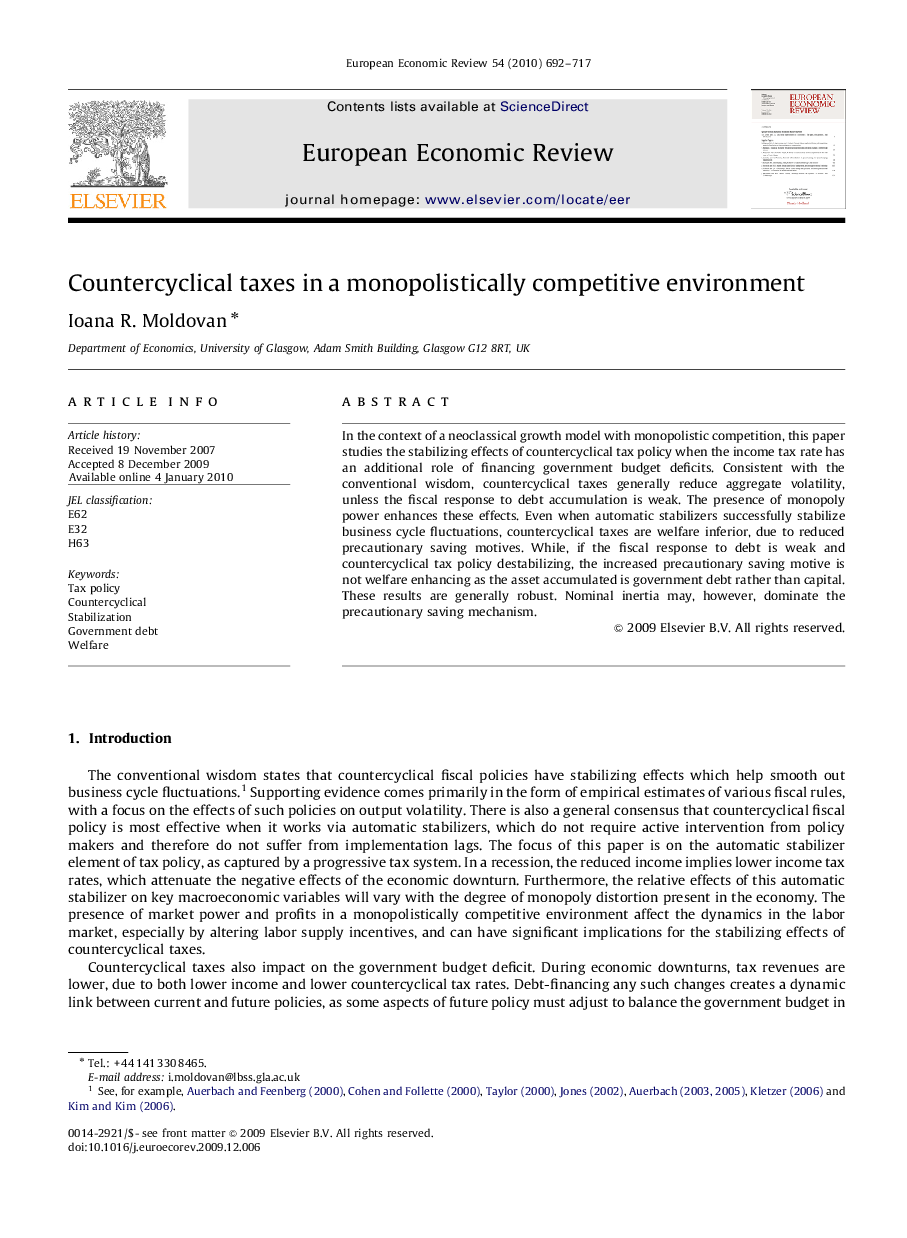| Article ID | Journal | Published Year | Pages | File Type |
|---|---|---|---|---|
| 5067197 | European Economic Review | 2010 | 26 Pages |
In the context of a neoclassical growth model with monopolistic competition, this paper studies the stabilizing effects of countercyclical tax policy when the income tax rate has an additional role of financing government budget deficits. Consistent with the conventional wisdom, countercyclical taxes generally reduce aggregate volatility, unless the fiscal response to debt accumulation is weak. The presence of monopoly power enhances these effects. Even when automatic stabilizers successfully stabilize business cycle fluctuations, countercyclical taxes are welfare inferior, due to reduced precautionary saving motives. While, if the fiscal response to debt is weak and countercyclical tax policy destabilizing, the increased precautionary saving motive is not welfare enhancing as the asset accumulated is government debt rather than capital. These results are generally robust. Nominal inertia may, however, dominate the precautionary saving mechanism.
